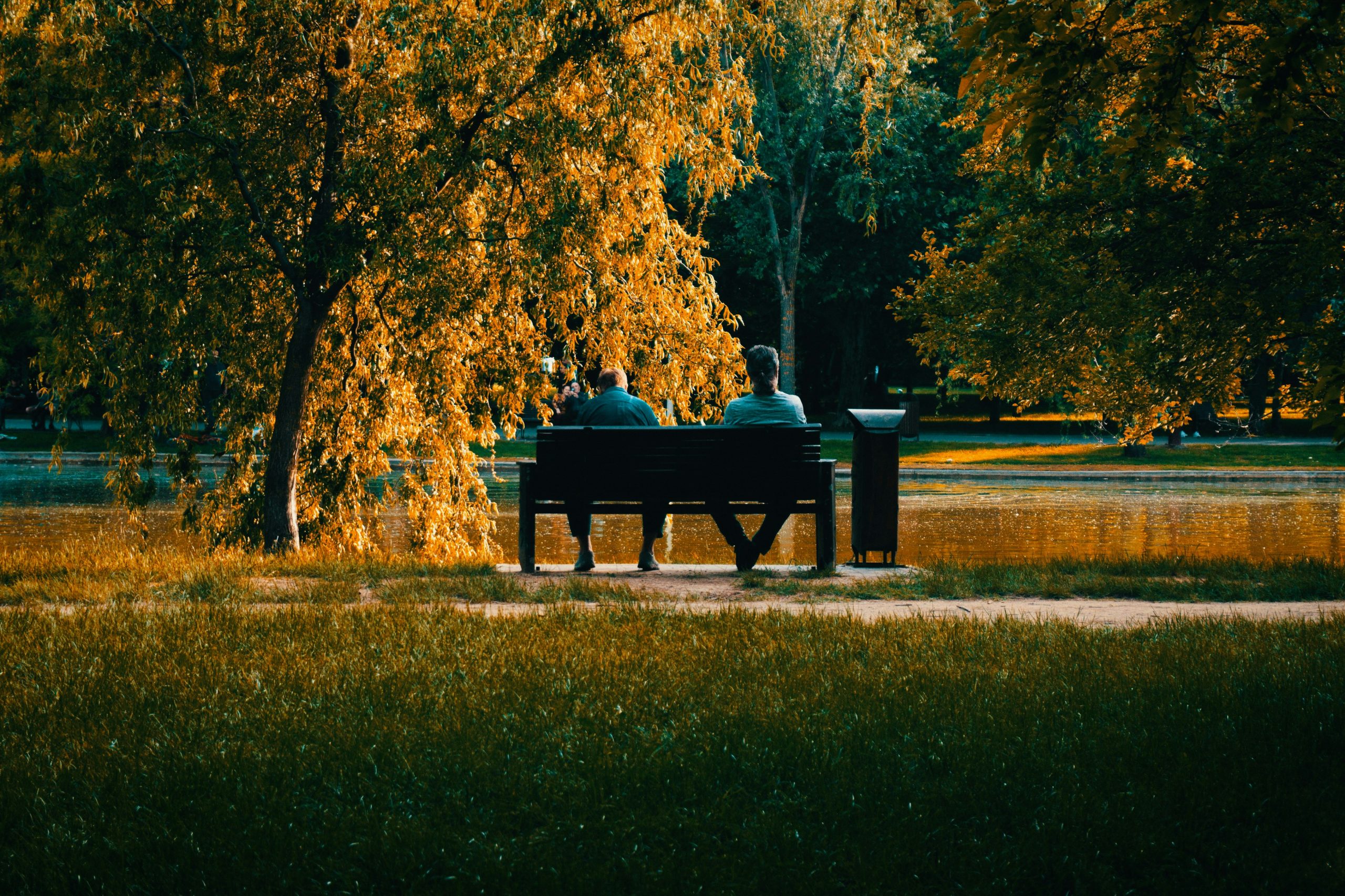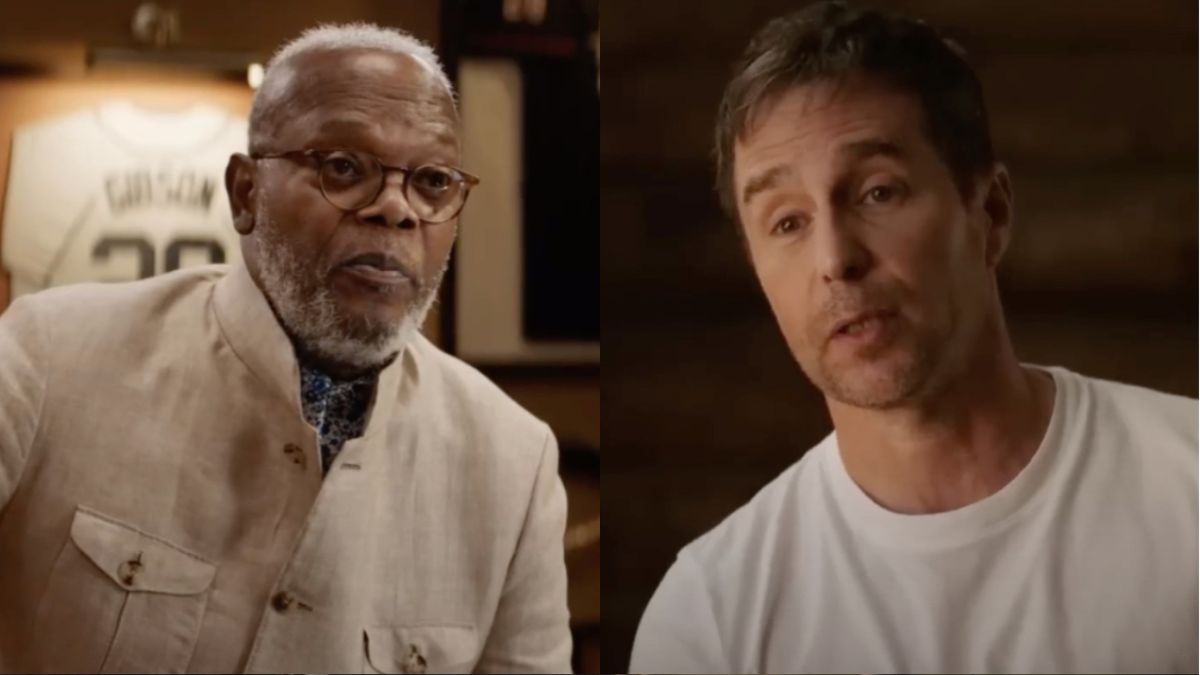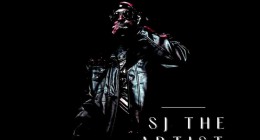The first page of Hisham Matar’s latest novel is so emotionally perplexing, so masterfully crafted that I promptly screenshot and sent it to several reader friends. My Friends begins with the end. Two old friends are parting ways, and we are left wondering about the weight on their chests, all the unsaid.
Khaled, the narrator, is a young Libyan who moves to the U.K. to attend college, but taking part in anti-Qaddafi protests in London dramatically alters the course of his life. Fellow student Mustafa and older writer Hosam, both also Libyans, become companions in his forced exile. The narrative covers years and geographies, leaping back in time and into the future, hinting at what’s to come and what could have been avoided, taking the friends all the way through to a midlife built on a string of personal choices, in the shadow of real-life events—an embassy shooting, crackdown on dissidents, Libya’s revolution, and the killing of Qaddafi.
As the political tide turns each man must choose for himself what allegiance to their country means. “A revolution requires a great deal of imagination,” Hosam tells Khaled. But so does the life of an émigré who has had to situate himself vis-a-vis his native country and his adoptive one and learn to make a home in the in-between. For Khaled then, a return to his hometown would mean a re-envisioning of the painstakingly built sense of self. “Bengahzi was the one place I longed for the most, it was also the place I most feared to return to,” he says.
This novel is an ambulatory meditation on the passing of lives, on being far from the homeland, and on the complexity of friendships. Here friends are receptacles of trust, dispensers of pleasure, interpreters of the world. They are mirror images, reflecting the person one fails to become just as they are custodians of the memory of our past selves. Matar’s novel is also a moving portrait of family. His characters have the sagaciousness of inhabitants of old lands, knowing what words to choose to fend off lurking danger, what words to soothe the sorrow of separation. Do you recall the old fig tree in the courtyard? Khaled’s father asks his son rather than pressing him to come back to Libya. “It’s suddenly blooming.” My Friends, at once gentle and ravaging, is a work of great beauty, and an infinitely wise book.
I spoke with Hisham Matar on the eve of the publication of his book. We discussed male friendships, assessing history, time and temperament, the distance between one’s chest and the world, and exile as a form of death.
Ladane Nasseri: I’ve heard you say you initially thought the idea for this book came in 2012 but going through your archive you found a few lines you had written about it in 2003 already. What was the known element about this story in the midst of all the unknowns of starting a novel?
Hisham Matar: The first idea was to write a book about friendship, particularly male friendship, and I wanted the human events to be central, but I wanted them to be subjected to history, to politics, to different desires of intimacy, the tension between feeling at home in a friendship but at the same time trust being contingent because of the situation. And also questions of competitiveness. I think on some level my work is fascinated by masculinity. I’ve been thinking about what it means to be a man for a long time. These are some of the things that have been accompanying me.
LN: It seems this book has been in you for quite some time. Why is that?
HM: the books I write I feel that in some way I am written by them. It feels that the book arrives or suggests itself, very faintly. And it seems that it has its own way with things, its own attitude, also its own appetites, the things that it wants to think about, so it really does feel like an independent agent and that I have to lend myself to its will. The options seem limited, I either do that, or I just don’t write it. So, in the beginning it’s almost like a half-remembered dream and I’m trying to make myself available to it. It then starts to dictate its own pace and with this one it arrived very, very, slowly.
There were other reasons for the delay that had to do with history. I knew my characters had something to do with the events of the Arab Spring, and what followed and I couldn’t write in the ways that I wanted to write about them so close to the event. I’d written journalism around that time, it’s a very different register, but to write a novel time needed to pass to build a certain degree of passionate ambivalence towards these events. It’s an oxymoron—I feel you need to write about things you are passionate about, but you need a certain kind of ambivalent distance to it so as to pull in all the contradictions. The scene of the killing of Muammar Gaddafi… I would have never been able to write that closer to the event. I was bewildered. So, this book took a long time because I needed to find a way to it, but also because of history.
LN: The events were happening as you were writing…
HM: Yes, and you would know this, if you know people really well, people you grew up with, close friends, members of your family, and you watch them as they’re subjected to these very extreme historical upheavals, you notice how differently they respond. They can start at the same place politically or ideologically or even ethically and end up in different places largely influenced by questions of personal temperament. I thought the novel is really the place for temperament. It’s very hard to talk about temperament on the political stage but it seems to me that temperament is something that’s really at play here.
LN: This novel is an exploration of friendship, and an ode to friendship. You mentioned temperament, but I wonder whether the three main characters, or four if we want to count Rana, are not different facets of Khalid himself—all the people he could have been or that he holds within him. Did you also aim to portray the different facets of an exile?
HM: Not consciously. I didn’t mean for it to be sort of a survey of archetypes of exile. The novel is motivated as you say, by a meditation on what friendship is because it is to me an open question and a fascinating one, and I can’t help but for the book to be on some level in critical praise of friendship. But I had so many intentions, they are hard to account for. I had an intention of writing a novel that was epic in scale, but really about the most intimate things. So, not about revolutionary political drama, but actually about the drama of the heart. I also wanted to write a novel that reciprocated some of the reading pleasure that I get from books, when you’re on the edge of your seat, you can’t stop, you want to know what’s going to happen, at the same time, for it not to do that at the expense of a meditative or a philosophical register. I wanted all those registers. I tried it in different ways, but I found that the restrictions of Khaled’s gaze, the things that he knows and doesn’t know, became incredibly fascinating to me. So, we never really meet Mustafa, Hosam, Rana. We are meeting them through Khaled, through how he sees them. The book is thinking about the distance between what’s in your chest and the world. That’s why it starts with a preoccupation, and it’s motivated by that throughout the book. The desire to know and the impossibility to know, that you can be sitting next to somebody you know very well, looking at the same view or painting and you have no clue what is happening inside their chest. That to me is such a simple, commonplace, everyday occurrence but it’s so phenomenal and bewildering.
LN: You talked about the companionship of books. Books and writers form a thread throughout this novel. Books are physically present, like Khaled’s library or the books Hosam takes with him everywhere he goes. The characters also have a lot of conversations about authors. So, there’s the friendships of Hosam and Mustafa but also the companionship of all these dead authors and their work. Does the title My Friends also refer to these books?
The novel is a space where all the doubts and the contradictions can be articulated.
HM: Yes, very much. It’s a very good question and a good point. I agree. For Khaled the companionship has been obviously those friends, but also very much those books. One of the most moving parts when I was writing was when he discovers that he can walk into a public library without being asked anything and he then uses it as a space for experimentation. Reading has on some level always been that for me. Khaled is a curious character because he is at once very free, he feels that all culture belongs to him, at the same time, he’s very much trapped or stuck. I couldn’t quite figure out as I was writing whether this was the portrait of someone who is truly courageous or the opposite. I still don’t know for sure. I do think it’s quite amazing what he does.
LN: How so?
HM: I think there’s a lot of temptation in a situation like that to go into the past, or to run into the future and both seem to be incredibly legitimate things to do. It’s very difficult to remain with the present specially such an austere present. I don’t even know if that’s a good thing, but I know it’s not easy. Before I wrote books, I thought authors write books when their knowledge about the subject has fully matured, that they write out of a sense of mastery. But from my experience you write a novel exactly at the point when you don’t have words for the thing you’re feeling or thinking about. The novel is a space where all the doubts and the contradictions can be articulated.
LN: One of the main themes in your novel is exile. Some artists grapple with a serious dilemma: having the inspiration that comes from being in one’s own land or prioritizing freedom by leaving. I’ve had many conversations throughout the years about this with Iranian artists, especially filmmakers. Some tell me the day they leave Iran is the day the well dries up, and others say they must leave to be able to pursue their art. In My Friends, the main characters talk about the need to remain connected to the motherland or “the source” as they call it. What has been the role of exile in your development as a writer?
HM: It’s a very good question, a very hard question to answer. The overwhelming majority of my life I’ve lived outside of my country. I was a young child when we left so I came of age, and I became a man abroad. And right now, I feel we need another word maybe because technically I’m not an exile if exile means that you want to return and cannot return. That’s not my situation right now. I have this bifurcated sense of identity or an accumulation of different things. I used to worry ‘am I less because of this?’ or ‘am I more because of that?’ I used to think in those terms. I don’t anymore. It is what it is and I’m certainly much more at ease in it than before. But if you’ve come of age in your home country, and your work is fed and nourished by it such as some of the filmmakers I admire, all this becomes very complicated. Anyone who judges someone for not leaving has no idea how difficult it is. It can be a form of death. But for me it’s not like that because I’ve been away since I was very young, and this book is also about my love affair with London. Although Khaled and I are very different we share the fact that London has been nourishing and hospitable.
LN: The narrative device in this novel is Khaled’s walking itinerary in London. He steps into the past by revisiting defining places and scenes and as a reader it made me very much aware of the slipperiness of time—Time passed and time passing. This book has such an elaborate, intricate structure and because it starts with the end as soon as I finished reading, I wanted to return to the beginning and start again with this new perspective. You have said that the structure of your memoir, The Return, hardly changed compared to how you wrote it. Did you have a similar experience with My Friends?
I’ve been thinking about what it means to be a man for a long time.
HM: Structure to me is integral not only to how the book is read, but to how it’s written. It’s written from its structure rather than, say, writing it linearly and then mixing it up. Obviously, there are many drafts and things move around and get cut, and other things are added. But the mode it is in right now is the mode in which it was written. In fact, the first thing I wrote was the first page and I wrote it years ago. It’s been with me for over a decade, not knowing who’s speaking, why this tone, why is this farewell so significant. But it was structurally written in that shape, and it adheres to some of the things I always think about with time. A protagonist in this book that is even more important than London is time. How it’s managed, how it exists as he is walking.
LN: So, you were clear on Khaled’s walking meditation from the start?
HM: Yes, I knew that it’s told on a walk. I just wasn’t sure what will happen in the walk, where he will go or whether he’ll meet anyone. I was in it. I was moving with the characters. In some ways, writing is easy because all you have to do is be aware of the false notes. When you hit a false note, you take it out and try to find the right note. But there were times when I thought this is not a book or I’m not listening properly. There was a moment, about a year into the book, when I put the 150 or 200 pages I had across my studio—quite a long way into the book for you not to know whether it’s working!—I put them across the whole wall, down the corridor. I needed to see them visually, I needed to know what is happening here. So, I don’t want to give you the impression that it was just an easy…
LN: Walk in the park!
HM: Walk in the park! Exactly! But it worked as long as I stayed in that space. Not trying to see beyond what I know. It’s a bit like in any relationship. If you’re with someone and you’re constantly thinking, about whatever end target you have decided, friendship, or marriage or business partnership… it spoils it because it pre-determines what’s going to happen.









